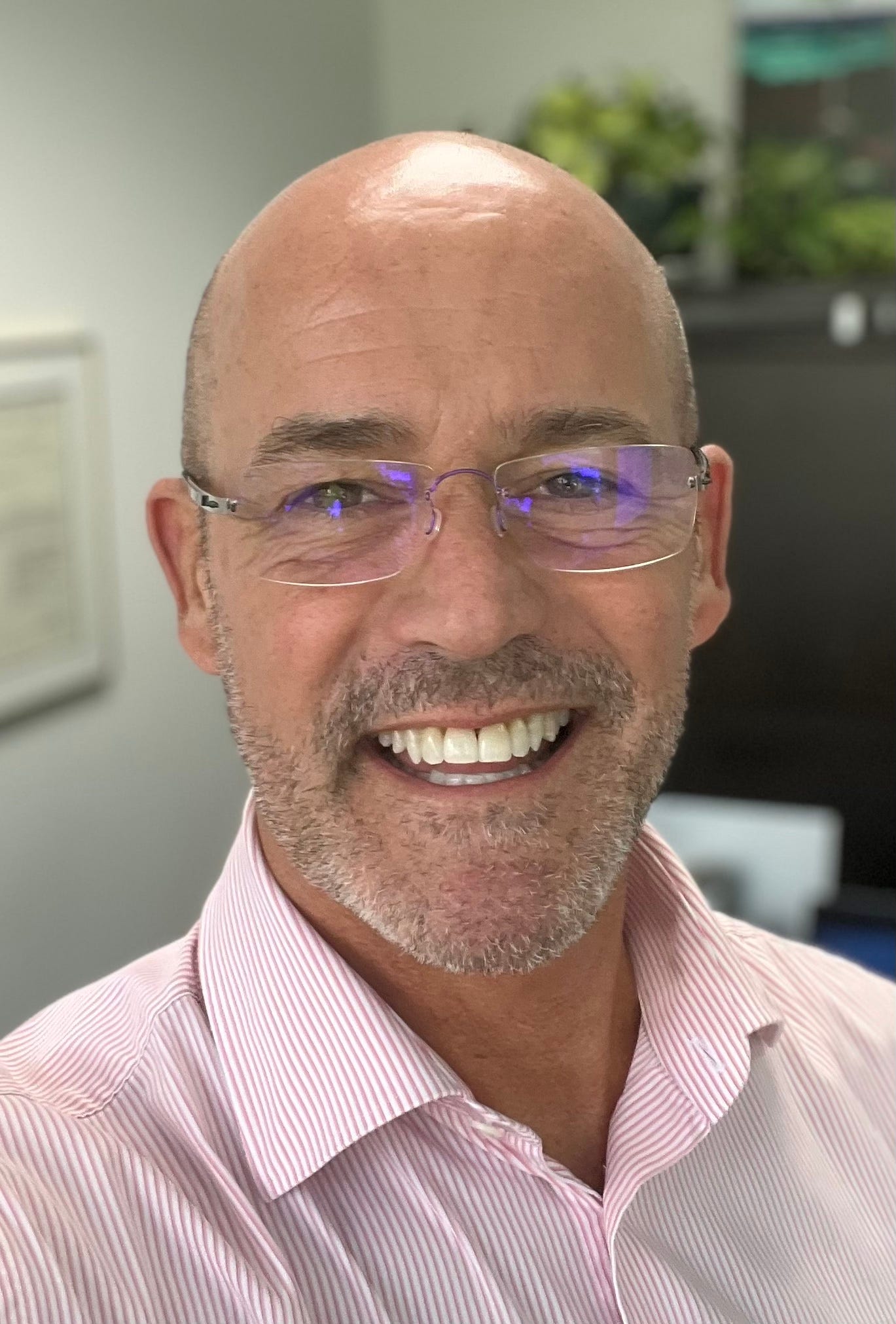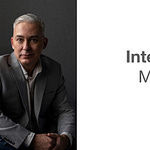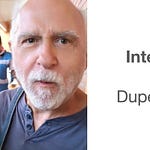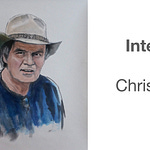For this week’s conversation I had the pleasure of learning from Brian Patterson, a Cayman Islands based, Bermudian corporate offshoring expert, crypto council and lawyer.
With the entire FTX implosion currently occurring I thought it would be prudent to speak with someone at the heart of the nexus between crypto, the Caribbean, international offshoring, regulation and international banking.
For those not caught up with the FTX scandal - I recommend reading before listening or reading the below interview.
A Grand Unified Theory of the FTX Disaster - by Mathew Crawford - For a more ‘conspiratorial take on the implosion but equally important summary
Brian Patterson is also my first cousin. He is originally Bermudian but is based currently in the Cayman Islands. He is also a certified executive coach and trainer, an RYT-200 yoga and meditation teacher, and an avid scuba diver.
Brian Patterson’s Bio:
Brian Patterson is Senior Corporate Counsel in the Cayman Islands. He has worked as both external and in-house counsel in Bermuda, Cayman and the UK, giving him a broad background in offshore corporate and commercial work in various industries including re/insurance, oil and gas, and hospitality. His experience has included risk management, claims and compliance as well as group corporate governance and AML/ATF issues in Bermuda, Cayman the US and the UK.
He advises regularly on mergers and acquisitions, corporate re-organizations, dis/continuations and joint ventures. His practice now includes advising on Cayman’s new virtual asset service provider regime as well as the data protection laws and regulations.
Leafbox:
I really wanted to talk to you because one, you're an attorney and two, you're based in the Caribbean and three not American, and four, you're my cousin, so maybe I can ask questions. The FTX scandal seems to be imploding and being a black hole, but one of the things I was most curious, I have no exposure to it, but I was particularly interested in what an attorney in your line of work thinks about this all. But before we start, why don't you give everyone just a quick bio of who you are and where you are and what you do? .
Brian Patterson:
All right, great. Thanks very much. Robert. Brian Patterson, senior corporate council here with in the Cayman Islands. We cover just about everything. And Cayman Islands is an offshore jurisdiction, which is, I guess shorthand for. We're not supposed to say no tax, we're supposed to say neutral tax or low tax these days. And so there is no income tax, capital gains, dividend tax, that sort of thing here, same as Bermuda where I come from originally. Both those jurisdictions are quite busy with international corporate work. So I do corporate work, not litigation work, although there is quite a bit of litigation work that is thrown up by some of the corporate stuff that we put in place. But large corporate deals come through the Cayman Islands all the time. And so I'm able to participate, take, get a fair bit of work coming without even having to advertise much people come to us rather than us having to go to them. So that's just a bit of my background. Anything missing, Robert, let me know.
Leafbox:
So just let's talk about the FTX implosion. What's your first, what's the water cooler conversation in the Cayman Islands about this situation?
Brian Patterson:
Well it's, it's a big deal obviously for anybody who's in financial services or financial markets, but there is definitely a line to be drawn between those who are involved in crypto and many of them are deep into it and those who have nothing to do with crypto and are watching from the other side of the fence. And so there isn't really much of a middle ground and those who aren't involved aren't really, they read the news and they see the numbers and they think and Ron and that sort of thing. But as we saw the fellow who has taken over at ftx, Ray, John Ray, Jack Ray, he helped bring Enron through its insolvency. And his first comments were he has seen nothing like the level of failure, the degree of failure in the compliance accounting, KYC type of information that is coming out of his initial couple of days, review of the financials and infrastructure of ftx. So that does not bode well.
The crypto market in general for most people is not very well regulated. And so for some people, for unscrupulous people that they see as an advantage, an opportunity. And so for us here in the Cayman Islands, I do the crypto work for our company, for my office. A lot of the other guys won't touch it cuz they're not familiar with it, they don't know about it. But when I say I do crypto work, what I do is help crypto clients set up their companies under the crypto regulation here in the Cayman Islands. We are managed by the Cayman Islands Monetary Authority, SEMA for short, and they put in place a couple years ago, a quite robust regulation for virtual asset service providers. V A S P, so VAs for short, and there are probably 10 to 15 regulated VAs entities in the Cayman Islands now who have gone through very in depth, uh, kyc, which stands for Know your Client due diligence on the directors, the shareholders, the experience, the knowledge of these people who are setting up companies to assist with virtual assets, be that exchange or outright sale or custody, any business to do with virtual assets.
So those kinds of regulations are in place in a place like the Cayman Islands, you have the British Virgin Islands, which is sister jurisdiction, similar, no tax jurisdiction, but their regulations, they have regulations, but they're a little less robust. So there's a few exemptions that Vasts can use there. And so more often than not, we might put the crypto business in the Virgin Islands with a holding company in the Cayman Islands. Gives the client the best of both worlds. As you mentioned at the beginning, US versus non-US is a big discussion, ongoing discussion in the US about regulation. Is crypto security, is it a commodity? How is it to be regulated? Well, it's not yet regulated and so you end up with these types of FTX situations with 50 odd billion worth of assets tied up or lost by hopeful if unsuspecting clients of that particular exchange.
Leafbox:
Brian, how would you compare the Bahamian regulatory framework and jurisdiction to the Cayman and to other
Brian Patterson:
Ones? Right. Yeah, I mean, that's a good point. So Bahamas, as you know, is an independent nation. They went independent quite some time ago, had a rough time of it for a while and have been building themselves up, selling themselves as an offshore jurisdiction. But they don't have the infrastructure or the same rule of law that we might have in the Cayman Islands. Cayman, Bermuda and BVI are all British overseas territories. So we have common law, we have statute law, but we are governed by, and any client or counterpart here has a right of appeal to the Priv Council in London, the highest court in the British group of, in the British iss and it's overseas territories. So that gives a lot of comfort to anybody who's coming to those places. Bahamas does not have that sophisticated type of legal structure.
I'm recognized as an offshore jurisdiction that they're certainly better than what they used to be. But setting up in a place like that probably requires less due diligence and less strict actions and activities. I think there is a Bahamas Securities Administration or some sort of an entity of that nature. I've seen them named in some of the articles, but I know I don't know anything about them. If we have a Bahamian matter, we'll go to those guys and take their instruction. But in my crypto dealings and in my corporate dealings, there is not a whole lot of interaction with The Bahamas. So it could be said that it is not as sophisticated or as developed a jurisdiction as some of the other ones mentioned.
Leafbox:
Do you think that was purposely chosen? I mean it's impossible to know their intentions, but would you assume have advised an exchange to fund themselves in base?
Brian Patterson:
No, I would not have, but my clients and my approach is to make the best of what's in front of us in terms of, there's a balance between regulation, reputation, authority, and cost. So sometimes a place like Cayman, it's more expensive to, and Bermuda it's more expensive to operate, but you have a high degree of regulation and reputation. BVI a little less expensive, but you still have good regulation and reputation. Bahamas is definitely a choice for those who want to set up without having to go through as strict a process. I mean, my sense is that they may have set up there initially because it was a little easier, little more entrepre friendly, but I don't think they realized how big and how busy Fdx would get mean that was, it just skyrocketed within a couple of years with the system, the ecosystem, the offering that they had in place, the contacts. And so the reasons for choosing Bahamas at the beginning, if FTX wanted to, let's say a year ago, had grown to such a size, if there were concerns, the opportunity would've been to move their domicile, move the company to a different jurisdiction with stronger, better regulations. But they didn't, whether that was cuz they were too busy dealing with their success, I'm not sure. But
Leafbox:
It just seems troublesome when the father of the CEO and the father of San Bankman Fried are both legal regulatory experts in US law
Brian Patterson:
It, it's unusual whether that means that they're getting some sort of special secret advice or whether that means they don't talk to their parents at all. <laugh>, not sure, but you would've thought that there would be some kind of, my thought is, oh, and I'm projecting my own perspective, oh listen son, you need to consider your reputation and your jurisdiction choice versus what someone else may think. Oh son, if you're considering something, listen, let me tell you where to go, where you can make it the easiest way to go. And which of those, I guess as you say, we're not quite sure,
Leafbox:
How do you think this is gonna play out legally? I mean the jurisdictional challenges just seem profound. They're filing bankruptcy in the us so just walk me through where you think this is.
Brian Patterson:
So I think it was 150 companies or a hundred companies that were involved in as aspects of the group of companies in a bunch of different jurisdictions globally. But so what's happening now is bankruptcy in the primary jurisdiction in the us And so bankruptcy, again, I'm a corporate lawyer, not a litigation lawyer, the litigation guys who would be involved there. But for instance, my firm has acted quite quickly and last week put out a memorandum, which I've sent to you, Robert, you would've seen describing the case that's going to be, or preparation for the bankruptcy proceedings and gathering claimants, gathering people who have lost or whose funds are locked up because now that it's in bankruptcy, it's being monitored, managed by the government, by the liquidators, everybody has to line up and make their claim for what they say they're owed, prove their claim, and then get a percentage divide up whatever's left amongst the claimant's. Whether they'll get 50 cents on the dollar, 1 cent on the dollar or less. We're not quite sure yet.
Leafbox:
Do you think there's evidence of regulatory capture in The Bahamas
Brian Patterson:
Of regulatory
Leafbox:
Capture?
Brian Patterson:
What do you mean by that?
Leafbox:
Well, FTX and S B F or the founders seem to make donations to strategic regulatory bodies and media bodies. So I'm just curious how you find that playing in or not, or I'm just concerned, how does The Bahamas actually create, or how does the Cayman's regulatory bodies not get in bed with the,
Brian Patterson:
Oh my God, here in Cayman or Bermuda? I mean, working here, you, yeah, you might go out for lunch with someone that you work with at the Monetary authority in Bermuda or Cayman and you might pay for that lunch, but that's as far as it goes. You are not going to take 'em out for dinner and their families and put wine on the table, et cetera. Both those regulatory authorities, by virtue of being in an offshore jurisdiction already, they're both well aware that they need to be extremely careful as to how both, what they do and what they're perceived to do in terms of interaction or favoritism or any kind of involvement with client regulatory issues. So yes, very little of that would happen here. There's certainly no contributions or donations or presence <laugh> that would be involved in The Bahamas. Not sure, and I, I'm haven't actually dug into that yet.
Leafbox:
From the general, the Twitter mind sphere has become kind of a citizen journalist effort and they found images of him with the Ministry of Finance and they're opening new buildings and to them the FDX was a golden goose that would help prop up the Bahamian kind of crypto market. And then when the exchange closed, they were the first regulatory agents to almost get a backdoor access to pull out their funds. The thing I'm questioning as an attorney, how did all the investors get duped by these people, you know, have Sequoia and all these, how is the due diligence? I mean, I call you up and you're already sending me so many red flags. One, they're The Bahamas two, they don't know. Right? But what's your take on this? Just
Brian Patterson:
So for instance, I have a couple of crypto clients who have decided to set up here in the Caymans for all the reasons listed before, they're, they are very smart, very sensible, very risk averse. And they are, it's crypto, crypto, blockchain business. They're a lot of volatility, more volatility than almost anything. But these guys, and I've watched them over the course of years, these guys are very careful with what they do and what they get involved in. Luna and the terror precursor to this, they stayed way well away from ftx. They had no exposure to their, they make decisions based on their own very sensible views. Now that means sometimes they're ignoring potential profit, potential revenue, potential exponential returns. The average person, let alone the average institution, when they see the kinds of returns, exponential returns that are theoretically possible because of the volatility of crypto and because of the whatever is being touted by the founders of some of these firms, they can't resist. And unfortunately you might wanna say their mercenary instincts overcome their morale, moral instincts. And that leads to this kind of situation.
Leafbox:
How do you expect Sam Bankman free? Do you think there's gonna be aspects or how do you think this is gonna pan out for them? He seems, he still talks to the press and he's responding to questions and it just seems he's not as nervous as he should
Brian Patterson:
Be. No, no, exactly. For someone who, is that where some of the commentators have noted he was worth 26 billion a couple years ago, 20 billion at the beginning of this year, 10 billion a couple weeks ago, and absolutely zero Now he does not seem to be faced, and whether that's because he's really emotionally disconnected or he's, he's looked after himself in some way, I'm not quite sure. Just financially from, in terms of consequences for his actions. Yeah, I'm not sure how far it'll go. I mean it depends on whether it's, I mean, you would imagine it would go as far as, yeah, there's jail time to be paid for the degree of fraud and the degree of mismanagement apply funds, misappropriation of client funds to, you moved them from FTX to Alameda, what 4 billion? That was not his money. But see then when you got this whole structure that's propped up by the collateralized, by the ft t, his own token, which is made up money just from any sort of sensible crypto perspective, that doesn't make sense. But that didn't seem to deter all of these folks who are now in the unfortunate situation, I'm not able to have access to their funds, if ever.
Leafbox:
Well the conspiracy theory is that this was all done on purpose to implode the crypto market and lead to what's known as Central Bank digital currencies. Because the second this imploded, there's talk now in the US about the need for heavy regulation for really
Brian Patterson:
Right.
Leafbox:
Cranking down on that. So it is interesting that Sam Bankman, Fried's father is literally the expert on regulatory law on S E C and the Fed and all this. So I don't wanna go down the rabbit hole of conspiracies, but I'm curious what you think of, since you're in the crypto space, the Central bank digital currencies, if you have any opinion on them.
Brian Patterson:
No, I mean it seems a next step in the terms of crypto development globally there there's much more to be done and developed and the fact that there isn't regulation in place to manage or assist with these kinds of crazy situations that would seem to beg for some type of regulation because the parties are obviously not self-regulating. And the bottom line for any of this regulation is to protect the consumer, protect the average person who might want to invest institutions who do it. They're supposed to be sophisticated investors. But the reality is that this has happened, whether it was, I mean, it would be a very large and unfortunate experiment if it was done on purpose to create that type of arena for further regulation. I'm not sure whether that's, I think it may be more these guys put something in place. It grew way out of hand for anything that they could have imagined or attempted to regulate far faster than they could.
Leafbox:
Well, to me it just seems like a Ponzi scheme similar to the Madoff situation. Right? I just don't understand how you have all these due diligence lawyers analyzing everything and writing 200 million checks and just not even asking questions. And then just the ftx, they're guaranteeing 15% returns with no risk. They kept saying no risk. It just seems so outrageous. Yeah,
Brian Patterson:
Well e exactly that just statement on its own 15% return with no risk. How is that possible? That's a statement made by the owners, their own perception of no risk and how that's received by the buying public is an entirely different matter. And it's that distinction that the court, I imagine, will look at focus on and count the numbers and find them severely wanting in terms of how they manage the whole process.
Leafbox:
Yeah, because at least with the Madoff Ponzi, it seems like he had just false records with the accounting. But here, according to the Enron ceo, it just seems like they had nothing in place.
Brian Patterson:
He listed off a bunch of issues that were not being managed and that would seem to be potentially could be laid at the feet of The Bahamas regulatory system because that would not have happened in Cayman or BVI. It's in other words, they would had to have hidden things from the regulators in order to get that far in Bahamas. It didn't seem like they had to hide anything. They just did what they wanted and were able to operate with such loose controls. I mean, it's like a race car and nobody's doing up the lug nuts on the tires or making sure the gas tank doesn't leak. We're making sure that there's a seatbelt you, it's just thrown together with no protections and set out at high speed, not a recipe for disaster, in fact.
Leafbox:
How do you think this affects just the general image of the Caribbean as kind of a wild banking place?
Brian Patterson:
I mean, from where I sit in the Cayman Islands, I don't think it affects us that much. It, it's more of a commentary on the crypto business, which we are quite conservative on here. But Caribbean in general, I, it's Bahamas, I think everybody knows Bahamas is has, I shouldn't say everybody. I believe that the general perspective is The Bahamas is a bit of a wild west situation. You can do things there that you couldn't do in other places. Came in bvi, Bermuda are blue chip offshore jurisdictions with strong regulation, a history of strong regulation, rule of law, common law, statutory in place. So we continue to do business. None of my regular clients, non crypto clients have even whispered that they are concerned about their choice of jurisdiction as a result of the FTX stuff.
Leafbox:
Do you think this will have any relational change with the US government or the overreach that they sometimes have on fiscal matters worldwide?
Brian Patterson:
I'm not sure how they would be able to, I mean, we've got the faca rules in place where we can't have to identify and advise every us person about their involvement in businesses here. But the US can put in place at crypto regulation. We have ours already, the, I guess crypto, decentralized autonomous organizations. The whole DAO ethos is decentralized. There is, so one of the interesting things, when you set anybody up in a, you know, gotta go through your forms and the forms have dropdown lists and those dropdown lists, there's a standard one that you've seen before to identify the jurisdiction of incorporation, jurisdiction of business, well all these crypto guys, there is no jurisdiction. You're looking for global or other when these guys come in and there's some kind of business because they are outside of these types of jurisdictional, unless, until they put a company in place, it is decentralized and non jurisdictionally based. So most of them will make sure they keep out of the US because of the US issues and extra territorial reach. But putting a company in Cayman or Singapore and then operating worldwide is not really an issue and will continue to operate like that.
Leafbox:
Are you optimistic on the future of crypto?
Brian Patterson:
Oh, optimistic. I mean like three years ago I would not have been, would've said yes, this seems like sensible development and it'd be interesting to see how it plays out. So put the regulation in place here and my practice here as I've been the lawyer most interested in finding out and learning about it and the types of clients that I meet and watch how they operate. I think there is definitely an area of, this is an area to watch that will expand. It hasn't taken full shape yet. The benefits blockchain versus the volatility, volatility of crypto currency. Those are two different aspects and I think there are and will be continued benefits and improvements in the crypto space altogether.
Leafbox:
Where do you feel that the center of the crypto world is? Is it Asia, is it Japan? Is it the US still? I'm just curious where you feel like the energy should,
Brian Patterson:
So Singapore has been one of the early adopters with regulation and quite a few crypto entities basing themselves there. So Cayman Islands is becoming another one. It's kind of funny. Cayman and Bermuda, Singapore, the banks will deal with it there. US doesn't have the regulation. And there are a couple of banks that will deal with Crypto. Cayman and Bermuda both have crypto regulation allowing companies to be virtual asset service providers. But no banks will touch it. The banks are still very old school risk averse. They like their mutual funds money and their institutional investors. Crypto is far too volatile for them. So it's the different jurisdictions and the different types of business or the different types of different aspects of crypto. Some of which involve somewhere, somehow you still have to switch crypto to fiat and who's gonna do that and how are you gonna do that? There's a bunch of clients that are making good money off of that because a bunch of the banks won't do it yet.
Leafbox:
Do you ever have conversations with the banks or do they ask for advice?
Brian Patterson:
Well, yeah, I mean we've tried. We get eager clients who will come and say, well yeah, I'm doing something very easy and very simple and I will tell the bank and they will help me and we say, Hey, go for it. I can introduce you, but payment banks are not ready. Bermuda has a bank, there's a bank that's set up but not yet given authority to operate. And supposedly they are a crypto bank. The government allowed them to set up but hasn't given them. I don't quite understand what's happening there, but it's not yet. It's not operating yet. So they're partway there, but not all the way.
Leafbox:
Got it. Do you have any experience with Chinese customers or any area from there or utilitarian kind of states and how they're using crypto?
Brian Patterson:
I have a lot of Chinese customers. I knew China was big, but the number of large Chinese offices from cities that I've never heard of before that are as large as you're average to large American city, it is staggering. So I got a lot of business from Chinese, directly from Chinese lawyers. None of it is crypto. All of it is regular banking, borrowing money, guaranteeing for property investment or manufacturing, ship building, that sort of thing. No crypto types of businesses, although as I say, Singapore is a center over there. And so there are, I think China, Chinese, everybody knows it's tough to get money outta China. So a lot of the Chinese structures, Chinese businesses will have, let's say Cayman holding companies somewhere in their structure. And those holding companies are where the funds will flow in and out of that are international. But when it's in China, it's very difficult to get it out. So all of that to say, I don't really know much about the crypto opportunities or business in and out of China
Leafbox:
And there's no overreach yet. Or not overreach, but reach from the Chinese state into the Caribbean. Right?
Brian Patterson:
No, not nothing like that. No.
Leafbox:
Because it seems like the US is still, they'll crack down if they don't, a certain company is doing something in the Caribbean, they might have the power to sanction them or whatnot. But you're not seeing that at all from
Brian Patterson:
No, no, not in terms of crypto, no. I mean we have
Leafbox:
General, well just in general. I'm just curious. No,
Brian Patterson:
I mean in general there the US has put in place, well the US is one of the only countries in the world that taxes its citizens on worldwide income, which to every other country is mindboggling that you leave France and go to live in Australia and you live in Australia for 10 years and you still have your French passport and you're paying tax back to France for instance. It would be shocking. It is shocking to people. To everyone except for the Americans. They just sort of take it for granted. No disrespect intended. When you're in water and you're fish in water, it's hard to describe the water. But no kinda overreach other than that.
Leafbox:
Well the reason I bring up the overreach is when I was looking at the offices, they had a whole thing about they're in the process of closing their Russian offices.
Brian Patterson:
Right?
Leafbox:
But it seemed like a vague statement in the process of
Brian Patterson:
Oh, so yeah,
Leafbox:
What happened, so I'm just curious,
Brian Patterson:
Came that came from the Ukraine conflict and the global sanctions against the Russians and also in Russian for Russian clients. So there was a very big undertaking to identify and sanction according to the rules and regulations that were promulgated globally. And it needs jurisdiction in which you worked.
Leafbox:
It's funny, Brian, when you say global, I mean that's the word the west users,
Brian Patterson:
But
Leafbox:
Those rules are probably in 20% of the world. Russia has no trading issues with India or Korea or China or 75% of the world. Right?
Brian Patterson:
Right. So when I say global in order to be considered to remain and be considered as a law firm worth dealing with a reputation would not be able to deal with Russian clients. Now, other law firms in India, as you saym, would take a different stance.
Leafbox:
It just seems like it created a whole arbitrage for middlemen to just continue the business all I think so. Cause the Russian oil is still flowing to Europe. It just flows through Turkey, through India. And it just seems like those sanctions failed in my opinion. And it just created a lot of extra profit margins for certain
Brian Patterson:
Middle countries. No, that's a consideration for sure.
Leafbox:
So I was just curious how that, and then it all plays into the crypto world because I mean you saw how that there's evidence now that
Brian Patterson:
Right
Leafbox:
Funds from the US ended up in Ukraine and those funds then got monitored or filtered into FTX and then right back to certain parties in the US or elsewhere.
Brian Patterson:
Yeah.
Leafbox:
So I'm just wild to see that kinda
Brian Patterson:
Yes.
Leafbox:
Money laundering
Brian Patterson:
At to such an extent. Exactly.
Leafbox:
What is the future for the next, what do you think for the next few years in the Caribbean or Caymen and what are you most, I mean I already asked, you're optimistic, but what do you immediately see? How long do you think this FTX thing will take to pan out or?
Brian Patterson:
I think it'll take a couple of years and it will, anything that is any considerations or discussions of regulation will be either, well will be backed by look what happened here, look what happened there. Therefore we need to put regulation in place. And so it will definitely push regulation in the US further and faster. And if not elsewhere here in the Cayman Islands, BVI Bermuda, we don't feel any pressure on our regulatory circumstances. But we would look to, we'd be interested to see, we are, we'll be interested to see what happens. There are clients, not clients of us, but let's say colleagues. I know people who have funds tied up. I can't get 'em out. Some of 'em managed to get 'em out in the early days because they got a phone call and some of them did not manage to get the money out. And so they are eager to know what's happened. So I think there will be a progressively more regulatory approach and this has certainly sped up that clock.
Leafbox:
Interesting. And then one of my last questions, Brian, is you remember the Panama papers and the
Brian Patterson:
Right
Leafbox:
That seems to have disappeared. I'm just curious, what were you gonna say Brian?
Brian Patterson:
So the Panama papers, I mean it was a list of people who had companies or arrangements in Panama spreading to all the other places. Every one of those lists, every one of those connections, very few of them were fraudulent or illegal from us in the offshore world. We look at that and we say, oh, that's too bad. Unfortunately is a bit of an invasion of privacy of the people who thought they had set up their arrangements in a particular way. But the majority of them were legal under each of the regulations. And those home, the home people, like it was a UK person or a US person. Just the existence of the Panama Papers does not mean that everyone operating offshore is doing so to hide. They're taking advantage of a jurisdiction that has a different approach to tax and regulation than other jurisdictions do. Jurisdictional arbitrage, if you will. And so, yes, there has not been as much fallout as the original editors or journalists played up when that information first came to light.
Leafbox:
Well, the reason I was gonna ask is I was like, how does your firms deal with leakage and how do they also enable or guard against hacking and what's the culture of that? And then even government infiltration,
Brian Patterson:
Heavy duty IT protection, cyber is an issue. I have to watch an hour's worth of cyber security, email, internet stuff every month. There's global security systems in place doing everything they can all the time as well as training people like me or people like the person on our front desk who answers emails with information questions. It's very strongly protected, more so than you would think if you go down the street to any business, that might even be a big business and their IT protections would not be the same. But because of the nature of, we have global clients and so we have to be extremely careful with that.
Leafbox:
And then has your firm ever, have you ever experienced, I'm just wondering if governments ever infiltrate these banks or these law firms or it's
Brian Patterson:
Just No, I mean the government doesn't. The monetary authority, which is the monetary authority as the regulator has the right to inquire, to have, make reports to audit each of those. So if you want to operate in a particular business and each one is regulated slightly differently, whether it's virtual assets, whether it's mutual funds, whether it's insurance, each of those is regulated by the monetary authority and they have the right to look in you, your and no one else does. And whatever they look at that is also, it's not made public, it's not common knowledge. Now when they find someone, and occasionally some of the service providers will get fines because they have not maintained their AML procedures, anti-money laundering your client, uh, requirements and they'll get fined. Those fines are made public.
Leafbox:
Got it. Just seems like even in the US it's funny how the Caribbean gets such a kind of negative reputation when I'm sure the KYC procedures in the Caribbean are probably even more sophisticated than
Brian Patterson:
Way more Robert, way more because of our situation as an offshore tax jurisdiction. We're constantly fighting against eu actually even more so than the states. The EU has. It is just a nightmare in terms of what we have to do when we vet our clients. So much so that when we have American or European clients from whom we have to require certified color passport copies, as well as a recent utility invoice showing your name and residential address, they balk the Europeans are like, what? You want what from me in order to do business? I'm like, yes, that's what we require and if you don't provide it, we're not gonna take you on as a client. So if you have a company, we want certified copies of all of the corporate documents, registered directors, registered shareholders, memorandum and articles, the works. So there is, our KYC is considerably stricter than most of the other countries.
Leafbox:
It's just interesting, isn't it, because the US is always, I would say most of the money laundry probably occurs through the us.
Brian Patterson:
Yeah, yeah, exactly. Exactly.
Leafbox:
Brian, are you on Twitter or are you on other social media where people follow you or can learn more about your work?
Brian Patterson:
Actually I, I'd be happy to take any emails or inquiries through my email. Probably best to use my home email, which is BJP 1 0 8 gmail.com. BJP 1 0 8. And yeah, happy to chat to anyone who's interested or has questions. And if you're interested in corporate work or opportunities or have business in the Cayman Islands, I can assist you.
Leafbox:
And then Brian, is there anything else you're working on outside of the legal work or anything else you wanna share?
Brian Patterson:
Well, I do a lot of diving. I do a lot of yoga. I do meditation. I'm the guy that has one foot in the corporate world and one foot in the holistic and spiritual world. And that's what keeps me balanced, Robert. I'm trying to keep up with you buddy.
Brian can be reached directly by email on Twitter @bjp108
More information on Brian Patterson











